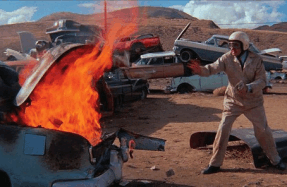Sundance: America and Beyond

Sundance, measured by the sheer volume of movies premiered and bought and sent into the global distribution pipeline, is the most powerful film festival in the US and now a close second in North America to TIFF. A festival with that kind of power isn’t the place to expect surprises. Its operational structure hums like a finely tuned German vehicle: hardy volunteers wrapped against the frigid Wasatch Mountains winter are unerringly polite and helpful; few if any screenings start late or are tripped up by technical problems; everything, down to the size of the pocket guide, has been thought out to the last detail.
How then can an organization be so exceptionally well-run, attentive to the granular level, and then be so slack on the programming side of the equation? Why the continuing dissonance between a public face of “progressive” culture and forward thinking as represented by its clear commitment to diversity of representation (including accreditations this year to more women film journalists), and a hyper-conservative programming philosophy that retains such outmoded section labels as “documentary,” to say nothing of the strange section label demarcation of “US” and “World,” as if the US were indeed on another planet? (Which sometimes seems true, though that’s not the intention.)
The dissonance reflects something intrinsic about American movies, where money always tops the leaderboard, with art lagging somewhere behind. You can pay for the most skilled operations staff, but
You’re reading a preview, subscribe to read more.
Start your free 30 days





